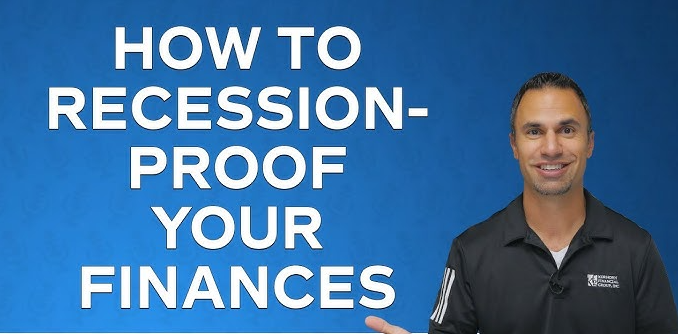
How to Recession-Proof Your Finances: Strategies for Economic Uncertainty
Recessions are an inevitable part of the economic cycle, characterized by declining economic activity, rising unemployment, and reduced consumer spending. While no one can predict exactly when a recession will strike, preparing your finances in advance can help you weather economic storms with confidence and stability.
In this article, we explore practical, proactive strategies you can implement to recession-proof your finances, ensuring you’re financially resilient no matter what the economy throws your way.
1. Build and Maintain an Emergency Fund
Your first line of defense in uncertain economic times is a robust emergency fund. This financial cushion covers essential expenses—such as housing, food, utilities, and transportation—if you experience income loss or unexpected costs.
How much to save: Aim to save three to six months’ worth of living expenses in a high-yield savings account. If your income is variable or you’re in an industry vulnerable to downturns, consider saving even more.
Pro tip: Set up automatic transfers to your emergency fund. Consistency over time builds a solid financial safety net.
2. Cut Unnecessary Expenses
When the economy slows, it’s time to scrutinize your spending. Identify and reduce or eliminate non-essential expenses, such as dining out, subscription services, and luxury purchases.
Create a lean budget: Focus on needs rather than wants, and ensure your essential expenses are manageable even with reduced income.
Use budgeting tools: Apps like Mint, YNAB (You Need A Budget), and PocketGuard help you track spending and make informed financial decisions.
3. Diversify Your Income Streams
Relying solely on one source of income can be risky during economic downturns. Diversifying your income—whether through a side hustle, freelance work, or passive income—can provide a buffer against job loss or reduced hours.
Examples of income diversification:
- Freelancing or consulting in your area of expertise
- Renting out a spare room or property
- Selling products online
- Investing in dividend-paying stocks or REITs
Not only does this increase financial security, but it also builds valuable skills and entrepreneurial resilience.
4. Reduce High-Interest Debt
Debt, especially with high interest rates like credit card balances, can become a major financial burden during recessions. Focus on paying down these liabilities as quickly as possible.
Strategies to reduce debt:
- The snowball method: Pay off the smallest debts first to gain momentum.
- The avalanche method: Focus on debts with the highest interest rates to save the most money over time.
- Consider consolidating or refinancing for lower interest rates.
Avoid taking on new, unnecessary debt during periods of uncertainty.
5. Strengthen Your Job and Career Skills
Recession-proofing your finances isn’t just about managing money—it’s also about protecting and enhancing your earning potential. Those with adaptable skills and strong networks are more likely to retain jobs or find new ones quickly.
Tips to fortify your career:
- Keep your resume updated.
- Take online courses to learn new skills or earn certifications.
- Attend industry events and network regularly.
- Consider roles or industries that are more recession-resistant (e.g., healthcare, education, utilities).
6. Stay Invested, But Rebalance Your Portfolio
Market volatility often accompanies recessions, leading many to panic-sell their investments. While emotional reactions are understandable, it’s essential to keep a long-term perspective.
What you can do:
- Avoid selling investments out of fear. Historical data shows markets recover over time.
- Rebalance your portfolio to align with your risk tolerance. Consider diversifying with bonds, index funds, or stable dividend stocks.
- Maintain dollar-cost averaging—investing a fixed amount regularly regardless of market conditions—to smooth out market fluctuations.
7. Maximize Available Financial Resources
In tough times, don’t hesitate to leverage financial assistance programs or community resources.
Examples include:
- Government unemployment benefits
- SNAP (Supplemental Nutrition Assistance Program)
- Utility and housing assistance programs
- Non-profit credit counseling and debt relief services
Stay informed about new stimulus packages or support initiatives during economic downturns.
8. Protect Your Health and Insurance Coverage
Health issues can become financial catastrophes if you’re not insured—especially during a recession. Ensure you have adequate health, life, and disability insurance to protect your well-being and your family’s future.
Tips:
- Review your insurance policies to ensure they meet your current needs.
- Explore employer benefits or government programs like Medicaid if you’re uninsured.
- Consider high-deductible health plans (HDHPs) paired with Health Savings Accounts (HSAs) for tax-advantaged medical savings.
9. Plan for the Long Term, But Stay Flexible
Recessions are temporary, but the financial choices you make now can have long-lasting effects. Keep your long-term goals—like buying a home, starting a business, or retiring early—in mind, but adapt your strategies to suit changing conditions.
Revisit your financial plan regularly:
- Update your goals and timelines based on new information.
- Meet with a financial advisor for tailored advice.
- Set short-term priorities without losing sight of the bigger picture.
10. Maintain a Positive and Proactive Mindset
Financial stress is real, and a recession can intensify anxiety and fear. However, maintaining a proactive attitude and taking small, consistent steps toward financial stability can greatly improve your sense of control and peace of mind.
What helps:
- Stay informed with reputable financial news and avoid panic-inducing headlines.
- Practice mindfulness or seek mental health support to manage stress.
- Surround yourself with a supportive community focused on shared financial wellness.
Conclusion
While recessions are challenging, they also present opportunities for growth, learning, and resilience. By taking action now to build emergency savings, reduce debt, diversify income, and protect your assets, you can navigate economic downturns with greater confidence and security.
Remember, financial well-being isn’t about predicting the future—it’s about being prepared for whatever it holds. Recession-proofing your finances is a wise investment in your future stability and peace of mind.
